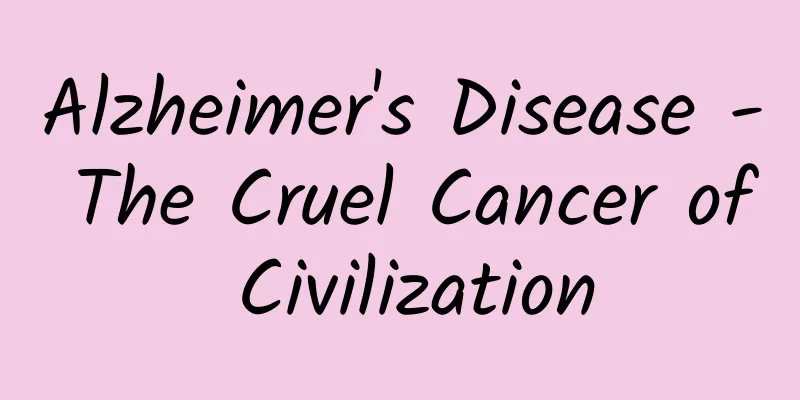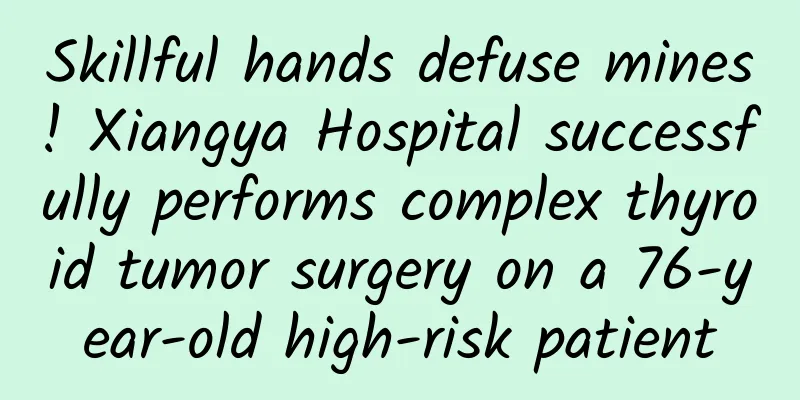Alzheimer's Disease - The Cruel Cancer of Civilization

|
Recently, the movie "Mom!" was released, telling a realistic family story about an 85-year-old mother taking care of her 65-year-old daughter with Alzheimer's disease (AD). The movie uses the most tender lens to show the cruelest disease, AD - the cruel cancer of civilization. AD is a degenerative disease of the central nervous system that occurs in the elderly and pre-elderly, characterized by progressive cognitive dysfunction and behavioral impairment. It is the most common type of senile dementia and one of the common chronic diseases in the elderly, accounting for 50% to 70% of senile dementia. AD is not just a memory disorder as the general public believes, but is also accompanied by aphasia, apraxia, agnosia, visual-spatial impairment, abstract thinking and calculation impairment, personality and behavior changes, etc. For AD patients, it is the destruction of self-esteem. The daily cycle of no solution, helplessness, and no cause is the terrible thing about AD; for the patients' families, it is a heavy care burden and mental loss. Currently, more and more studies have shown that controlling risk factors can help prevent dementia. This article shares this point in the hope of reducing the incidence of AD through early prevention. 1. Risk factors for AD 1. Vascular risk factors Diabetes, hypertension, dyslipidemia, overweight or obesity, smoking, the combined effects of multiple vascular risk factors, cardiovascular and cerebrovascular diseases, etc. 2. Social and psychological factors Low education level, depression, sleep disorders, etc. 3. Uncontrollable factors Age, gender, genetic factors, family history, etc. 2. Recommendations for primary prevention of AD 1. Recommendations for hypertension management (1) It is recommended that people with hypertension should adopt lifestyle intervention (Grade A recommendation). (2) People with hypertension should manage their hypertension, which may help reduce the risk of dementia (Grade B recommendation). Commonly used antihypertensive drugs to reduce the risk of AD include diuretics, calcium channel blockers, renin-angiotensin system blockers, etc. 2. Diabetes management recommendations (1) People with diabetes should be given standardized lifestyle and/or glucose-lowering drug interventions, which may help reduce the risk of dementia (Grade B recommendation). (2) It is recommended that people with diabetes should adopt lifestyle intervention (Grade A recommendation). (3) Type 1 diabetes requires daily insulin injections (Grade A recommendation). (4) Metformin should be the first choice for both overweight (Grade A recommendation) and non-overweight (Grade C recommendation) people with type 2 diabetes. 3. Recommendations for dyslipidemia management (1) It is recommended that people with dyslipidemia undergo standardized dietary structure adjustment and lifestyle intervention (Grade A recommendation). (2) Drug therapy may help reduce the risk of dementia (Grade B recommendation). Clinically, it is recommended to control dyslipidemia. 4. Recommendations for lifestyle interventions such as smoking cessation and alcohol restriction For healthy elderly people, it is recommended to quit smoking and drink in moderation. Non-drug and drug intervention measures should be taken for smokers and excessive drinkers to reduce the risk of cognitive decline and dementia. It is recommended to adopt a bio-psycho-social intervention model for most smokers and excessive drinkers, conduct health education and publicity, and take drug intervention when necessary (B-level recommendation). 5. Recommendations for daily leisure activities intervention It is recommended that the elderly engage in intellectual activities (such as calligraphy, painting, playing musical instruments, square dancing, etc.), physical exercise (at least 150 minutes of moderate to high-intensity aerobic exercise, endurance training, and Tai Chi per week are recommended) and social activities (such as attending birthday parties, group vacations, etc.) to help prevent the onset of AD (Grade B recommendation). 6. Nutritional intervention recommendations The MIND diet (a combination of the Mediterranean diet and a dietary pattern to prevent hypertension, which subdivides green vegetables and berries into different types based on the Mediterranean diet and adjusts the intake ratio of fruits and fish) is recommended for elderly people at high risk of cognitive impairment, which is beneficial for preventing AD (Grade A recommendation). At the same time, we advocate a diversified diet for the elderly. Preventive health care can also prevent AD to varying degrees. 7. Education level management recommendation It is recommended to conduct health education for the elderly and encourage them to attend senior citizen universities for lifelong learning to improve their cognitive reserve, which will help reduce the risk of AD (Grade A recommendation). 8. Cognitive training recommended Cognitive training can improve the overall cognition and multiple cognitive domains of healthy elderly people. It is recommended to adopt a comprehensive and individualized cognitive training program covering multiple cognitive domains, combined with lifestyle intervention, aerobic exercise, neuromodulation technology and other non-drug treatments, and conduct multi-form comprehensive intervention (Grade A recommendation). 9. Recommended depression management (1) For high-risk AD patients with comorbid depression, the use of antidepressants plus donepezil hydrochloride may improve the condition and delay disease progression (Grade A recommendation). (2) It is recommended to conduct regular depression screening for people at high risk of AD. Patients with clinically severe depression can be treated with serotonin reuptake inhibitors (Grade B recommendation). 10. Recommendations for sleep disorder management It is recommended that people at high risk of AD undergo regular sleep quality assessments, including insomnia, sleep apnea, etc. For elderly people with sleep disorders, non-benzodiazepines are preferred, and the efficacy and risks of the drugs should be regularly assessed. Long-term continuous positive airway pressure therapy is recommended for patients with mild cognitive impairment and obstructive sleep apnea (Grade A recommendation). 11. Recommendations for the management of special sensory (visual and hearing) impairments (1) Strengthen publicity to raise awareness of visual impairment among the elderly, conduct regular screening for visual problems in the elderly, promptly correct refractive errors, and treat visual impairments such as cataracts (Grade C recommendation). (2) Promotion should be strengthened to enhance the awareness of hearing loss and hearing rehabilitation among the elderly. It is recommended that the elderly undergo regular screening for hearing loss and wear hearing aids or use cochlear implants (Grade B recommendation). 12. Recommendations for management of brain injury It is recommended that elderly people with a history of brain trauma receive cognitive rehabilitation training as early as possible (Grade A recommendation). References: Chinese Dementia and Cognitive Impairment Diagnosis and Treatment Guidelines Writing Group, Chinese Medical Association Neurology Branch Cognitive Impairment Disease Professional Committee. Chinese Alzheimer's Disease Primary Prevention Guidelines[J]. Chinese Medical Journal, 2020, 100(35): 2721-2735. Arrangement丨Tan Tai Yiran |
<<: Hitwise: Survey shows Quora users are younger and richer
Recommend
How good are red beans for women's health?
Red beans have been a nourishing food since ancie...
Stroke endangers people's health, and the "China Brain Project" brings hope for recovery!
In January 2023, Tong Xiaoping's research tea...
There are a lot of pimples on both sides of the labia
Nowadays, many girls pay special attention to bod...
What to do if a girl has an itchy lower body
This is a rather embarrassing question, but many ...
A case study on anesthesia management for thyroid surgery in patients with damaged lungs
The thyroid gland is an important endocrine organ...
What does uterine erosion feel like?
Cervical erosion is a common disease in normal ti...
Why do women feel particularly tired?
People often feel physically fatigued, and their ...
What causes breast pain and early menstruation?
There are reasons for early or late menstruation....
What is the cause of white discharge from the breast?
White discharge from the breasts may be caused by...
How to get rid of double chin for girls
Many girls seem to have a slim face, but still ha...
Is there no stringy vaginal discharge when you conceive?
After a pregnant woman becomes pregnant, the amou...
How long will it take for the baby to die if there is no fetal movement?
When the pregnancy reaches five months, the baby ...
When is the best time to do a transvaginal ultrasound?
Vaginal color ultrasound is an examination perfor...
Will breast fibroids recur after surgery?
Breast fibroadenomas are relatively common among ...
Can pregnant women drink white radish water?
White radish is a common vegetable in daily life....









